COVID cases are “increasing exponentially”, according to a major study.
Scientists say it’s not clear when the growth will slow down, and if this will be before the July 19 lockdown lift.

Read our coronavirus live blog for the latest updates
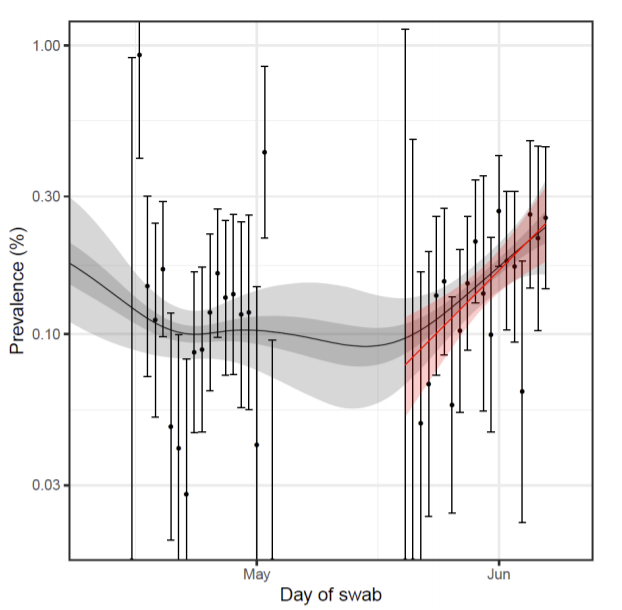
How prevalence of Covid has risen in the latest round of the React study. The shading and lines represent the variation in estimates, but the graph generally shows an upward trend

The surge in cases, driven by the Delta variant, comes as people have more freedoms to socialise. Pictured: Nottingam football fans on June 13
It comes at a time when the Government are racing to get all those over 18 vaccinated before July 19 – the new “terminus Freedom Day” date.
But it is uncertain what state the epidemic will be in by that point, amid spread of the new highly transmissible Delta variant and more freedoms to socialise.
The React study, by Imperial College London, took swabs of almost 109,000 people in England who were representative of the population.
The results showed that the prevalence of coronavirus was 0.15 per cent between May 20 and June 7.
This is 50 per cent higher than the 0.10 per cent reported in the previous round between April 15 and May 3.
During the two-week study period, the Delta variant went from making up 60 per cent of swabs on 20 May to 90 per cent on June 7.
Britain’s biggest virus infection survey also showed infections were doubling every 11 days, and the R rate nationally is 1.44.
But there is a clear difference between the young and the old, with youngsters who are unvaccinated driving the outbreak.
The prevalence of the virus was five-fold higher in those aged 5-12 and 18-24 (0.35%) compared to over 65 years.
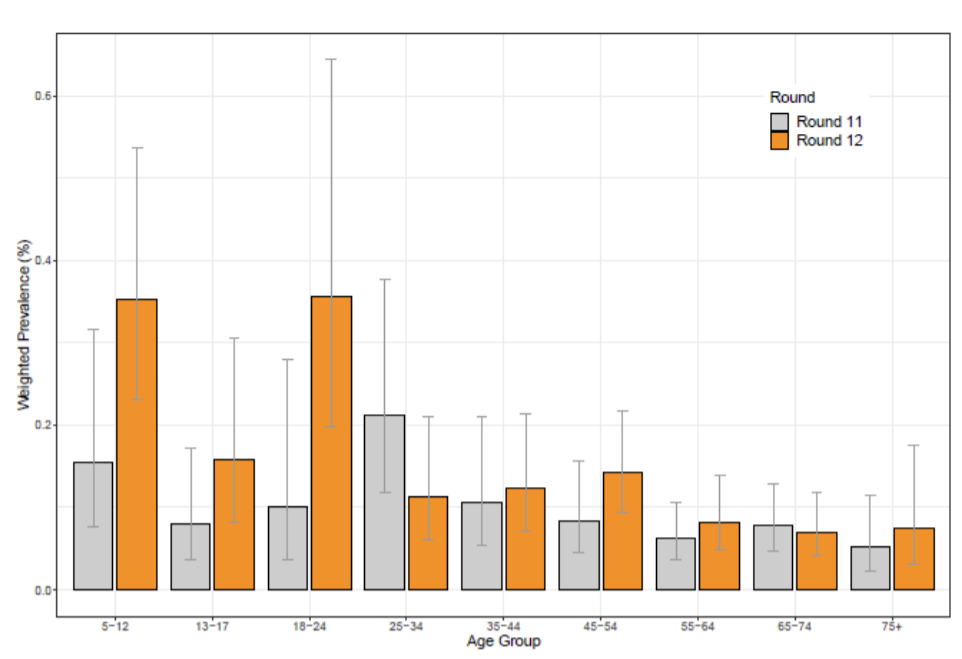
The virus has become significantly more active in ages between 12 and 24 than older groups due to younger people not getting their vaccines yet
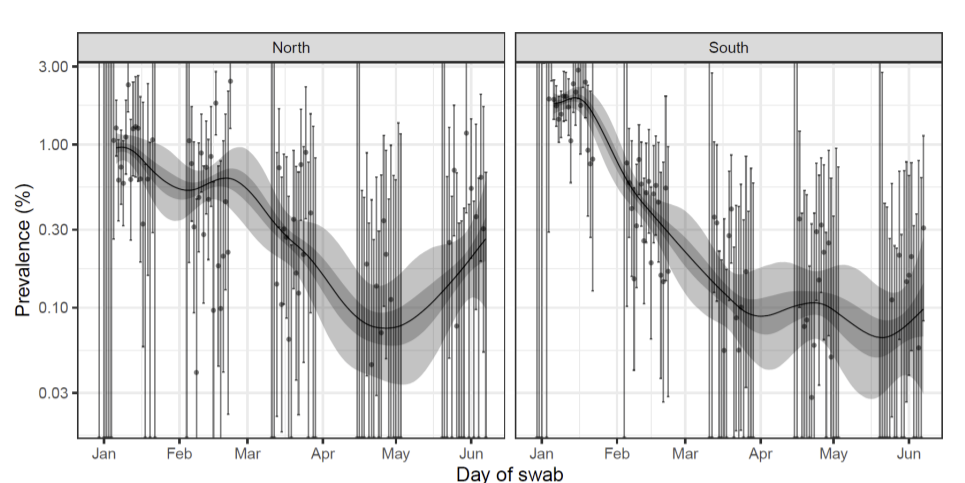
The outbreak is growing in both the North (deciphered as the Midlands as well) and the South of the country
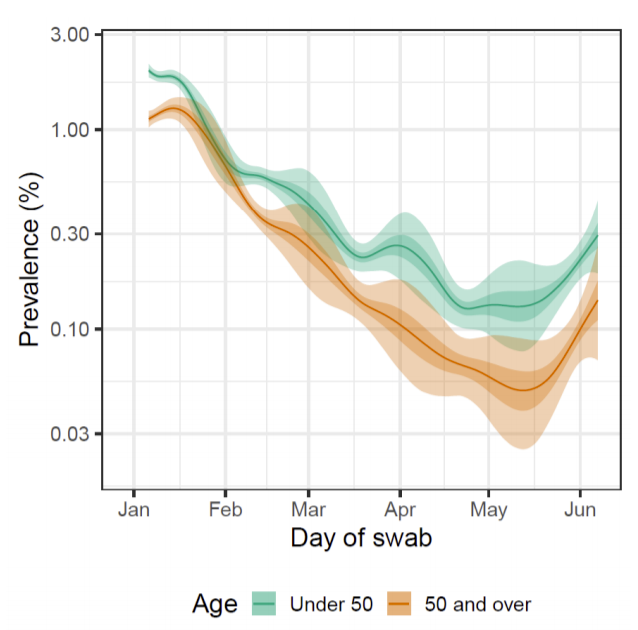
Prevelance of the virus is still increasing in older age groups (over 50) at the same rate as those under 50. However, researchers said case numbers remain low
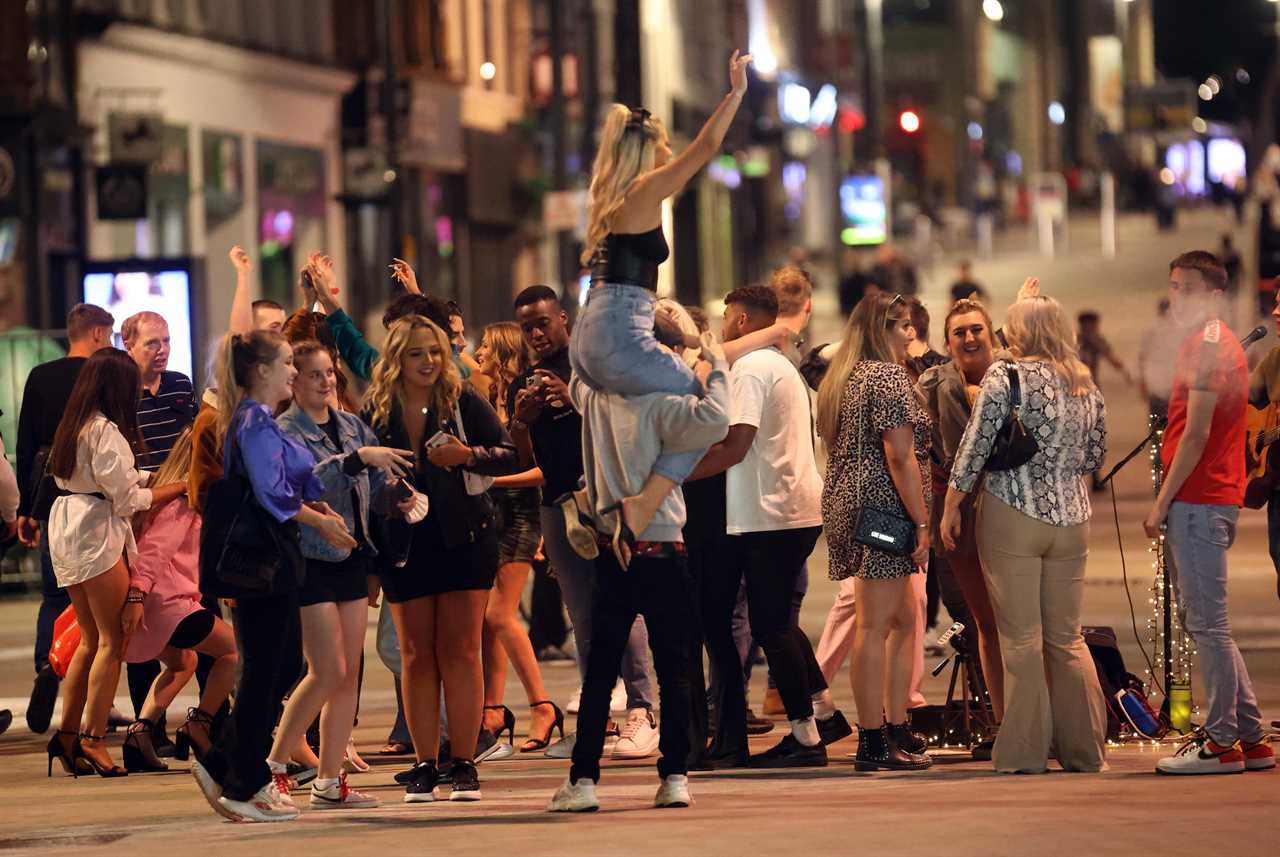
The virus is spreading in the young and unvaccinated, more data shows, as the Government races to jab all adults by July 19. Pictured: Leeds revellers on June 13
Speaking of the findings today, Steven Riley, Professor of Infectious Disease Dynamics, Imperial College London, told journalists: “Prevalence is increasing exponentially and it’s being driven by younger ages. It appears to be doubling every 11 days.
“Clearly that is bad news, and we’ve talked a lot about exponential growth in the past.
“But the key thing to point out here is that we are in a very different part of the epidemic in the UK, and it’s very difficult to predict the duration of the exponential phase.”
In previous waves when the React study has shown surges in cases, scientists knew there was hardly any immunity in the population, so the growth was likely to continue unless action was taken.
“Because of vaccines we know there is a lot of immunity in the population, but that even though there is a lot immunity, it doesn’t prevent some exponential growth,” Prof Riley said.
“The difficult thing is to predict how long that trend is likely to continue for.”
Prof Paul Elliot, director of the React study, said: “We are in exponential growth now, and the question is how long is that going to last and to what extent would the extra time to vaccinate the adults in the younger group put a break on infection.
“We are going to be watching very very carefully and monitoring through our study.”
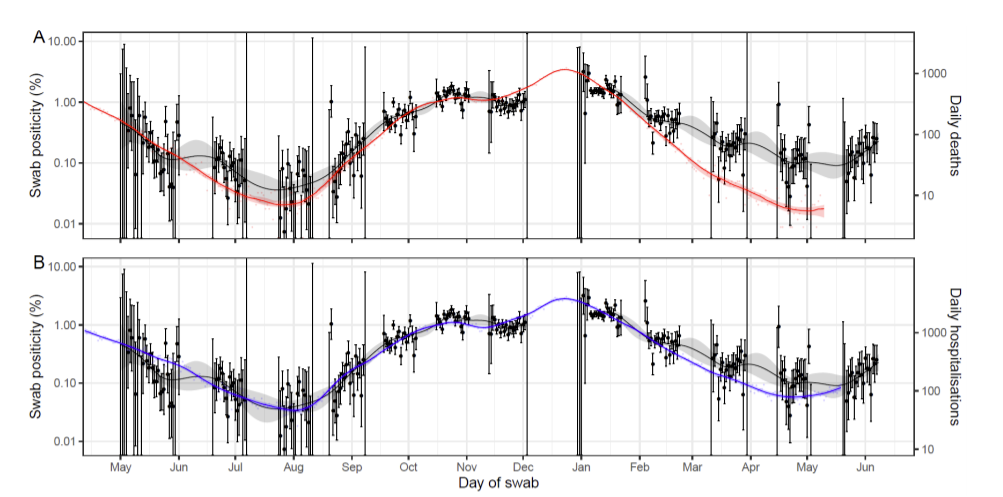 These graphs show how vaccines have broken the link between infections (black line) and deaths (red) and hospitalisations (blue) since the start of the year. But cases and hospitalisations are starting to come together again (bottom left). This is because no young people are double-jabbed, as opposed to the jabs failing in older groups, researchers said
These graphs show how vaccines have broken the link between infections (black line) and deaths (red) and hospitalisations (blue) since the start of the year. But cases and hospitalisations are starting to come together again (bottom left). This is because no young people are double-jabbed, as opposed to the jabs failing in older groups, researchers said
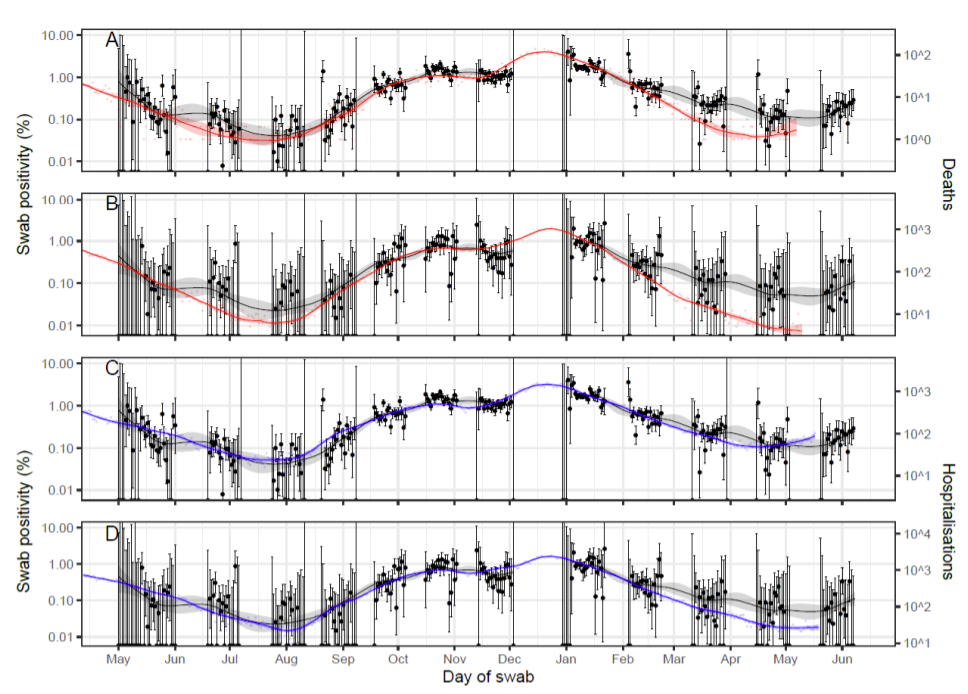 These graphs further show that, it is only in the younger groups (A and C) where the link between infections (black line) and hospitalisations (blue)/deaths (red) is not yet broken
These graphs further show that, it is only in the younger groups (A and C) where the link between infections (black line) and hospitalisations (blue)/deaths (red) is not yet broken
The good news is the React study gave further evidence the vaccines are working.
In the older age groups, cases were rising but the link with hospital rates and deaths appears to be broken.
“When split by age, the weakened link between infection rates and hospitalisations at ages 65 years and above was maintained,” the study reported.
Prof Elliot, chair in Epidemiology and Public Health Medicine, Imperial College London, said: “We are in a situation that’s quite unstable.
“Having said that, we take quite a lot of comfort that when we look into the detail, it does appear there is very good protection in the older ages where virtually everyone is double vaccinated.
“The government has clearly announced they want to vaccinate all adults in the period between now and July 19.
“I think that will make a very big difference and increase the total population immunity, which is going to be the key factor.”
He added there was a delay between the jab being given, and protection against the coronavirus mounting, and therefore “the sooner we get vaccines in arms” the better.
Vaccine drive
It comes as the vaccine programme was extended to those aged 21 and 22 on Wednesday.
Everyone aged over 18 should get their invite by the end of this week, Downing Street confirmed yesterday.
Prime Minister Boris Johnson said on Monday that the target to give all adults (over 18s) in the UK their first dose by the end of July had been brought forward to July 19.
Latest Government data suggests that so far, more than 41 million people had received their first dose – nearing 80 per cent of adults in the UK.
And more than 30 million have had a second dose – 57 per cent of adults.
Health Secretary Matt Hancock said: “Second doses are increasingly vital, so this is an incredibly important milestone.
“Day after day, our vaccination programme reaches new heights.”















